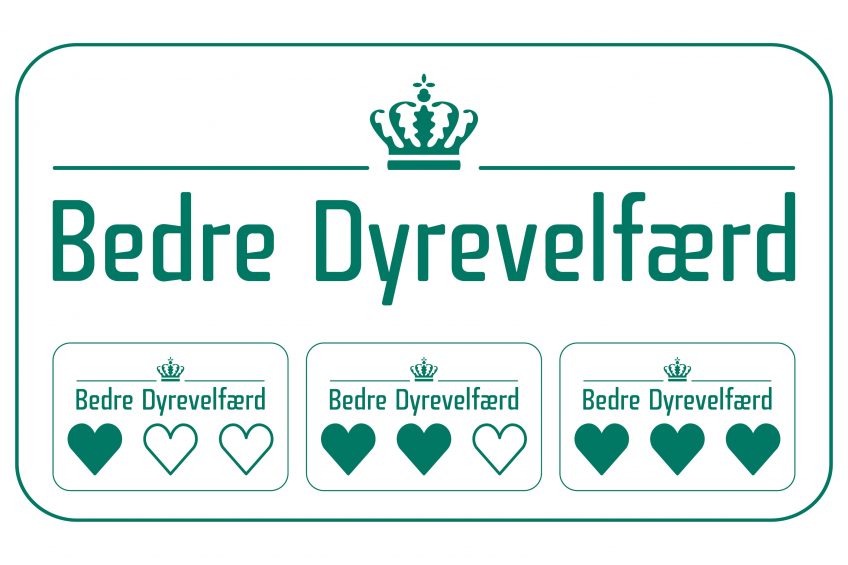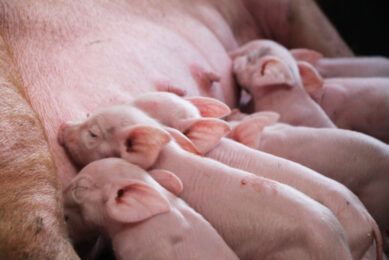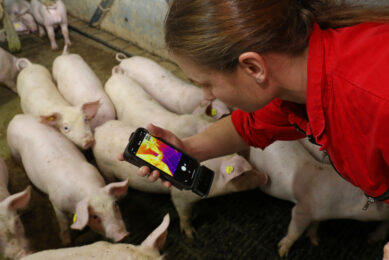New Danish welfare label encouraging pork sales

The introduction of a new welfare logo for fresh pork is perceived to be a success. According to Danish Crown 25% of its fresh pork currently sold in Denmark carries the new welfare label.
The welfare label is called ‘Bedre Dyrevelfaerd’ (‘Better Animal Welfare’) and was set up in the summer of 2017 with backing of the Danish government, the Dansk Supermarked Group and others in the retail sector. The label consists of 3 levels – 1 heart, 2 hearts and 3 hearts, each corresponding of more welfare conditions during the animal’s life.
Sales of welfare pork are booming
Jakob Skovgaard is responsible for the Danish market at Tulip Food, a subsidiary of Danish Crown. In a news release by Danish Agriculture & Food, he said, “Consumers have taken to the products in large numbers. Our sales of pork carrying the welfare category 1 and 2 label now account for 15% of total sales of fresh meat at Tulip Food Company. Moreover, the Friland label and organic pork are also seeing growth, with overall sales of welfare pork now accounting for 25%.”
Mr Skovgaard added that he believed that the sales show that the Danes are ready to buy food that prioritises welfare standards. He said, “I would go as far as to describe the scheme the greatest innovation within fresh meat since the launch of organic products.”
Prioritising animal welfare standards
Mette Rothmann, sales director at Tulip Food, said, “Pork is highly price sensitive. But now there is a much better opportunity to prioritise animal welfare standards in pork.
“The initiative is enjoying strong support – also from top restaurants and the new street food markets, which welcome our work with pigs.”
Drivers behind the Danish pig welfare label
Retailer Dansk Supermarked Group is one of the drivers behind the new label. The company owns the Føtex, Bilka, Salling and Netto supermarkets. The group reported significantly increased demand for pork produced with higher welfare standards and hopes the trend will continue.
Not all Danish supermarkets decided to join the scheme, due to differences of opinion. Supermarket chain Coop, the Danish animal welfare society Dyrenes Beskyttelse and the Danish Consumer Council criticised the voluntary label for misleading consumers. In response to the project, Coop launched its own welfare label.
Welfare label in the Netherlands
The Netherlands have known a similar-style welfare system for 10 years, called ‘Beter Leven’ (Better Life). This welfare scheme is widely supported, the initiative was taken by a nationwide animal welfare organisation that opts for cooperation with the sector instead of activism.

The 10th anniversary in August 2017 was a moment to look back, leading to various publications. Pig Progress’ sister publication Boerderij reported that in 2016, there were 795 pig farms producing for the scheme, as well as 261 poultry farms, 338 calf rearing farms and 129 meat cattle facilities. This means that about 20% of the country’s pigs are reared within the scheme, and the number is growing every year.
Farmers generally get a higher amount of money for their pigs, which helps them to compensate for reduced stocking density and other investments. Producers in the Netherlands that joined the scheme have not had substantially higher profits.











